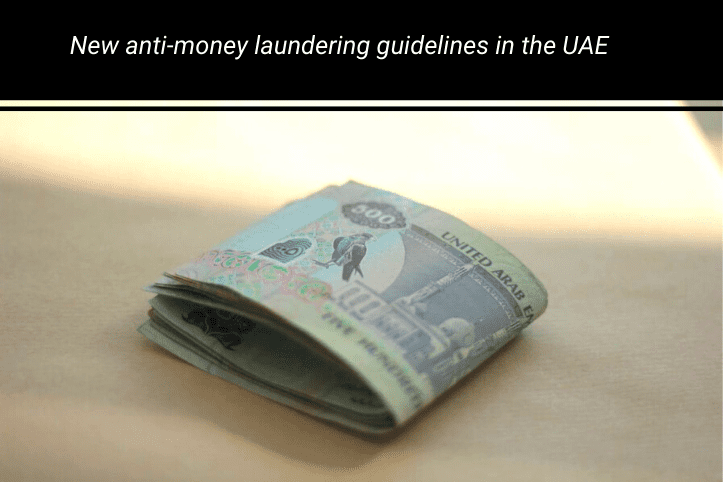New anti-money laundering guidelines in the UAE
Publications Written by Marsel Shadmanov

As a result of this assessment, it was concluded, that the country represents a complex landscape in terms of combating money laundering/terrorism financing (ML/TF) in a range of sectors: economic, trade, corporate, financial, etc. This complexity is articulated by its jurisdictional structure: 7 Emirates, 44 commercial free zones, and 2 financial free zones and fragmented supervision, which assists with the regulatory arbitrage between jurisdictions. The assessment has granted relatively high marks to UAE’s system, however, there is certainly room for further development. For keen readers, here is the entire assessment report.
The UAE’s AML/CTF landscape has been evolving rapidly over the past few years, and the country is facing further economic growth. The central bank (CBUAE) has been bolstering the supervision of activities and has issued recent updates and guidelines to combat money laundering in the country, being classified as a gray list by FATF. One of the performed measures includes enhanced due diligence for politically exposed persons (PEP). Furthermore, according to the new regulations, licensed financial institutions (LFI) must adhere to compliance programs in place to reduce risks associated with payments.
The guidance, which went into effect on August 1, 2022, will help LFIs understand the risks and effectively comply with their statutory anti-money laundering and combatting the financing of terrorism (AML/CFT) obligations and takes into account the standards of the Financial Action Task Force on Money Laundering.
The new guidance would impose upon the core legislation, which is Federal Law № 20 from 2018, overseeing AML/CFT, and financing Illegal Organizations.
Read also: goAML system in the UAE
The new guidance
The key pillars of the UAE’s AML Law include the following:
-
Increasing fines in order to toughen measures. According to the new AML/CFT law, corporations are now subject to obligatory liquidation and fines of up to AED 50,000,000 for money laundering violations that entail terrorist financing;
-
Optimization of the process for authorities to freeze potentially illegal funds. The Central Bank Governor is directly involved in the process, which gives the authorities the ability to act in no time against alleged criminals.
-
Including acts that violate Security Council resolutions under Chapter VII of the UN Charter on economic sanctions and terrorism in the AML law.
-
Enhanced investigative authority for the Public Prosecution. This specifically includes providing the Public Prosecution permission to collect and examine information and data from third parties through required collaboration with a wide range of other authorities, institutions, and corporations;
-
Expanded capabilities for authorities to conduct financial operations, for example, allowing suspected organizations to proceed with their transactions, in order to leave a trace and lead to other participants in the chain. For instance, the World Bank has already promised to support its partners in creating a new instrument capable of measuring particular financial flows.
Law enforcement authorities and international organizations are challenged with keeping up with change and putting similarly innovative mechanisms in place as a way of detecting and stopping such behavior as the methodology of criminal funding becomes more sophisticated. Ultimately, all participants in the global system who are responsible for preserving the integrity of the international market should prioritize opportunities for international collaboration that involve improving legislative defenses, raising awareness of the risks, and developing combative measures.
If you would like advice or assistance concerning AML/CFT regulations in the UAE, kindly contact us.
Marsel Shadmanov
Head of Corporate Services at Garant Business Consultancy DMCC
Phone +971 4 421 4335
Email info@garant.ae
